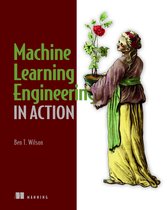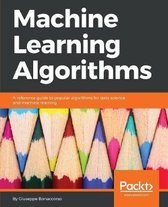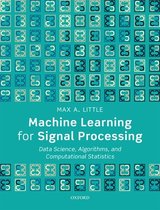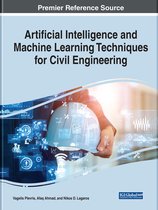Analysis and Design of Machine Learning Techniques Evolutionary Solutions for Regression, Prediction, and Control Problems
- Engels
- Paperback
- 9783658049362
- 17 februari 2014
- 188 pagina's
Samenvatting
Manipulating or grasping objects seems like a trivial task for humans, as these are motor skills of everyday life. Nevertheless, motor skills are not easy to learn for humans and this is also an active research topic in robotics. However, most solutions are optimized for industrial applications and, thus, few are plausible explanations for human learning. The fundamental challenge, that motivates Patrick Stalph, originates from the cognitive science: How do humans learn their motor skills? The author makes a connection between robotics and cognitive sciences by analyzing motor skill learning using implementations that could be found in the human brain – at least to some extent. Therefore three suitable machine learning algorithms are selected – algorithms that are plausible from a cognitive viewpoint and feasible for the roboticist. The power and scalability of those algorithms is evaluated in theoretical simulations and more realistic scenarios with the iCub humanoid robot. Convincing results confirm the applicability of the approach, while the biological plausibility is discussed in retrospect.
Contents
- How do humans learn their motor skills
- Evolutionarymachinelearningalgorithms
- Applicationtosimulatedrobots
Target Groups
- Researchers interested in artificial intelligence, cognitive sciences or robotics
- Roboticists interested in integrating machine learning
About the Author
Patrick Stalph was a Ph.D. student at the chair ofCognitive Modeling, which is led by Prof. Butz at the University of Tübingen.
Manipulating or grasping objects seems like a trivial task for humans, as these are motor skills of everyday life. Nevertheless, motor skills are not easy to learn for humans and this is also an active research topic in robotics. However, most solutions are optimized for industrial applications and, thus, few are plausible explanations for human learning. The fundamental challenge, that motivates Patrick Stalph, originates from the cognitive science: How do humans learn their motor skills? The author makes a connection between robotics and cognitive sciences by analyzing motor skill learning using implementations that could be found in the human brain – at least to some extent. Therefore three suitable machine learning algorithms are selected – algorithms that are plausible from a cognitive viewpoint and feasible for the roboticist. The power and scalability of those algorithms is evaluated in theoretical simulations and more realistic scenarios with the iCub humanoid robot. Convincing results confirm the applicability of the approach, while the biological plausibility is discussed in retrospect.
Productspecificaties
Inhoud
- Taal
- en
- Bindwijze
- Paperback
- Oorspronkelijke releasedatum
- 17 februari 2014
- Aantal pagina's
- 188
- Illustraties
- Nee
Betrokkenen
- Hoofdauteur
- Patrick Stalph
- Hoofduitgeverij
- Springer Vieweg
Overige kenmerken
- Extra groot lettertype
- Nee
- Product breedte
- 151 mm
- Product hoogte
- 15 mm
- Product lengte
- 212 mm
- Studieboek
- Nee
- Verpakking breedte
- 151 mm
- Verpakking hoogte
- 15 mm
- Verpakking lengte
- 212 mm
- Verpakkingsgewicht
- 236 g
EAN
- EAN
- 9783658049362
Je vindt dit artikel in
- Categorieën
- Boek, ebook of luisterboek?
- Boek
- Taal
- Engels
- Studieboek of algemeen
- Algemene boeken
- Beschikbaarheid
- Leverbaar
- Bestellen en betalen via bol
- Prijs inclusief verzendkosten, verstuurd door Roelants
- 30 dagen bedenktijd en gratis retourneren
- Wettelijke garantie via Roelants
Rapporteer dit artikel
Je wilt melding doen van illegale inhoud over dit artikel:
- Ik wil melding doen als klant
- Ik wil melding doen als autoriteit of trusted flagger
- Ik wil melding doen als partner
- Ik wil melding doen als merkhouder
Geen klant, autoriteit, trusted flagger, merkhouder of partner? Gebruik dan onderstaande link om melding te doen.








